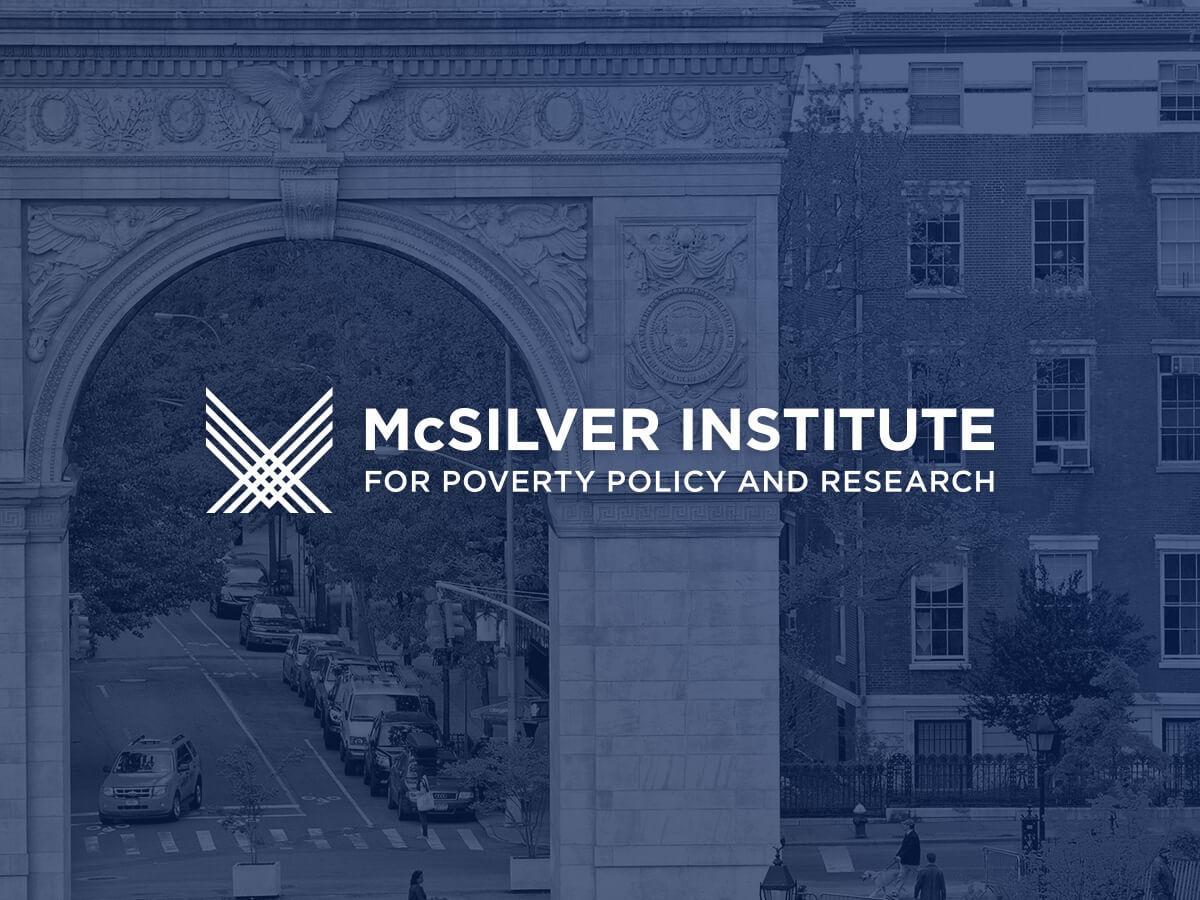The Brooklyn Academy of Music’s beautiful new Fisher performance space was full of inspirational sentiments on May 28th as the McSilver Institute hosted its Second Annual McSilver Awards. The ceremony honored five incredible and prominent figures who are leading the fight against poverty. Prior to the ceremony, BAM’s Hillman Studio was packed to the brim with people who were there to listen to distinguished speakers in two lively and informative panel discussions. The director of the McSilver Institute, Dr. Mary McKay, began the symposium with a warm welcome and a thorough and moving description of the work the McSilver Institute does. Dr. McKay acknowledged how difficult it can be to talk about such sensitive issues, and yet how important it is that we do so, which created a comfortable, supportive environment for the discussions ahead.
McSilver’s own researchers Nisha Beharie and Kara Dean-Assael followed Dr. McKay’s opening remarks with an eye-opening presentation defining food insecurity and why it is such an important issue to address. The two shared personal experiences they have had with food insecurity and highlighted how hunger in children contributes to higher obesity rates, illness, lower grades, trauma, and emotional and mental problems. They also presented new McSilver Institute findings linking economic hardship, food insecurity and educational outcomes.
After their presentation, Joel Berg, the Executive Director of the New York City Coalition Against Hunger, delivered a dynamic speech tinged with humor but full of shocking, impactful statistics. He shared that “there are over 1.3 million of our neighbors living in households that can’t afford enough food. One in five New York City children live in these homes, in the richest city in the history of the world.” Sheena Wright, the President and CEO of the United Way of New York City, followed and discussed the root causes of poverty. Ms. Wright remarked that “we can no longer be a successful country with the caste system that we have in place.” She also shared a personal story about her mother and how with government assistance she was able to advance her own education so her two daughters could succeed in life. After Ms. Wright’s remarks, a rich dialogue followed as the floor was opened up to questions and comments from the audience.
The second panel discussion focused on homelessness. Dr. Deborah Padgett, McSilver Faculty Fellow and NYU Professor of Social Work and Global Public Health, moderated the panel comprised of other leading voices in the field. Patrick Markee, Senior Policy Analyst for the Coalition for the Homeless, began the discussion and described his organization’s tireless efforts to advocate for the homeless dating back to the Callahan v. Cary court case in 1979 that established the legal right to shelter for homeless men and later women and children in New York City, as well as what the Coalition plans to do in the future. Rev. Heidi Neumark followed with a heartwarming description of how “the little shelter that could,” the Trinity Place Shelter, created a new system of helping LGBTQ youth. The Department of Veteran’s Affairs’ Julie Irwin gave everyone hope about the future of homeless veterans by sharing more about the effective Opening Doors plan. First Deputy Commissioner Lorraine Stephens of the New York City Department of Homeless Services spoke next, sharing new plans that DHS has made and plans to implement soon. Finally, Dr. Benjamin Charvat from the New York City Center for Innovation through Data Intelligence shared his exciting research findings compiled from his work with the young adult shelter the Chelsea Foyer at The Christopher. One thing the shelter does that the audience found particularly heartening is give the young people back their “rent,” which is 30% of their income each month, after their stay is over so they can put a down payment on a new apartment.
Incredibly knowledgeable and passionate speakers and a room full of interested attendees truly made the afternoon symposium a success. The McSilver Institute looks forward to sharing plans soon for more programming around these critical issues and beyond for the fall.
